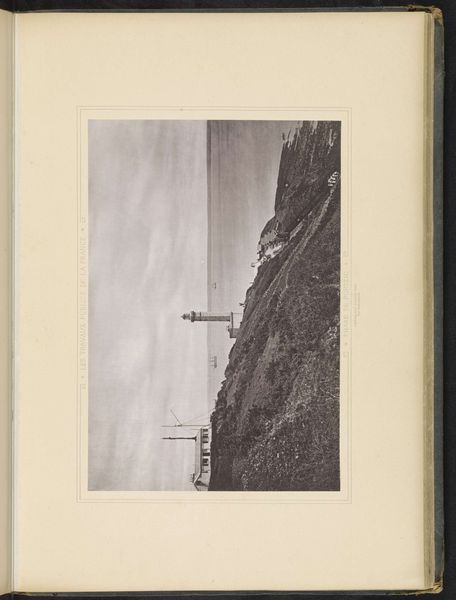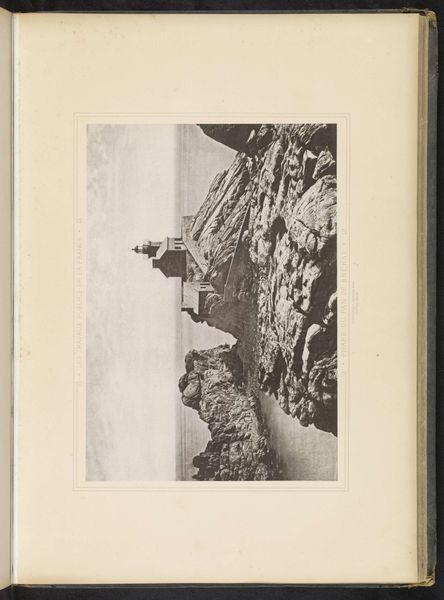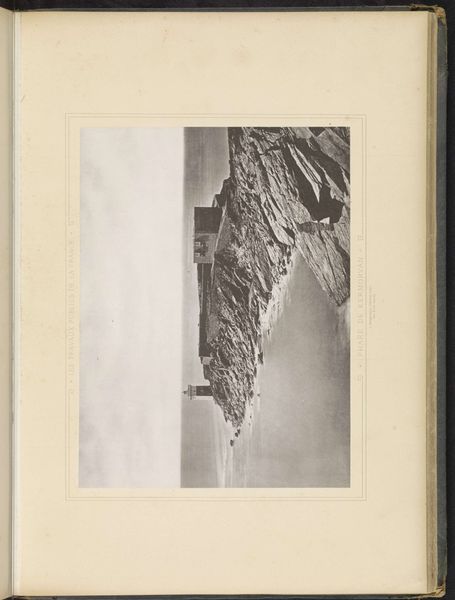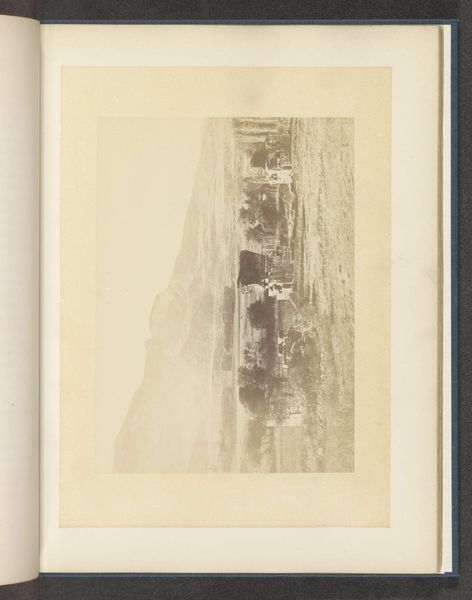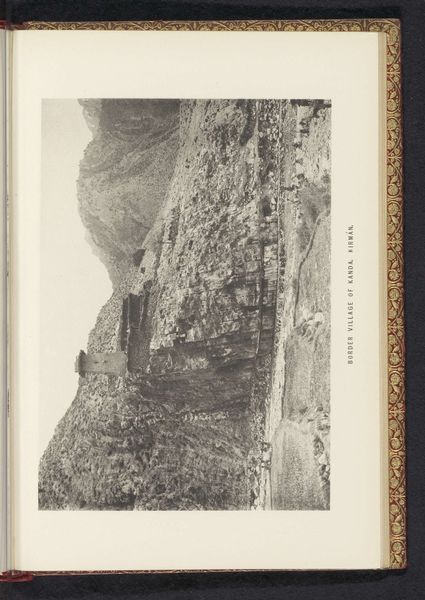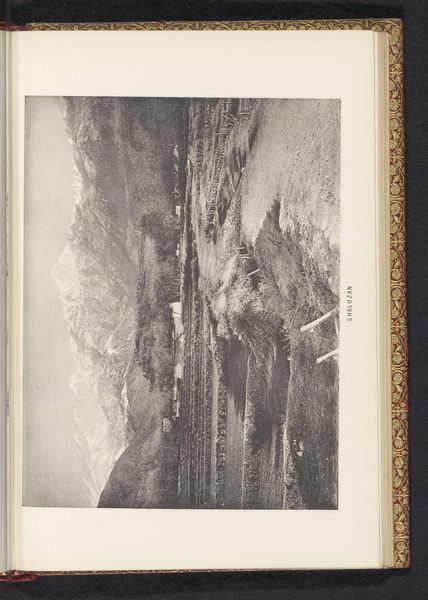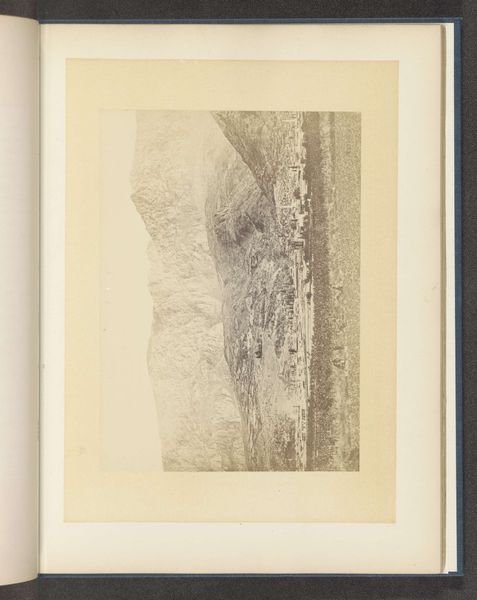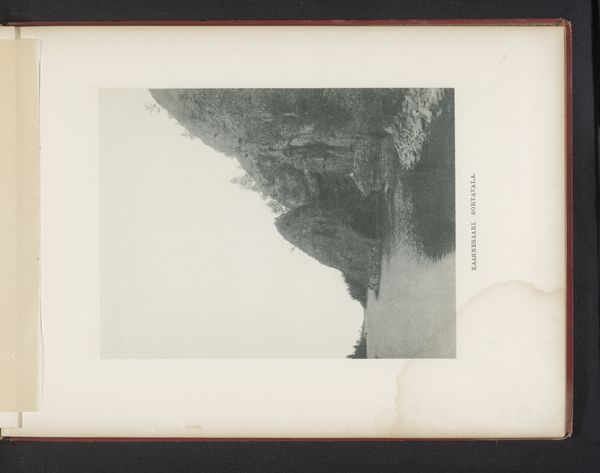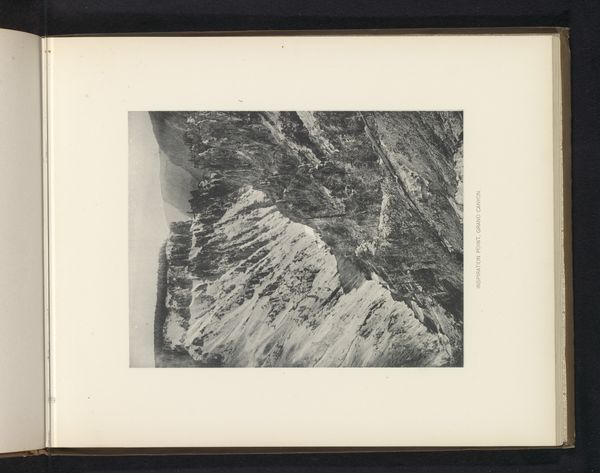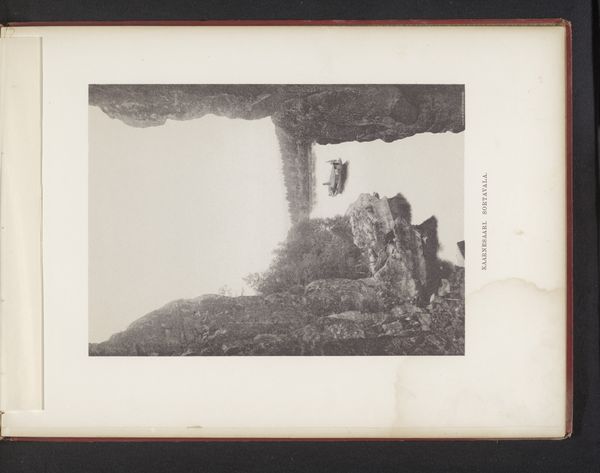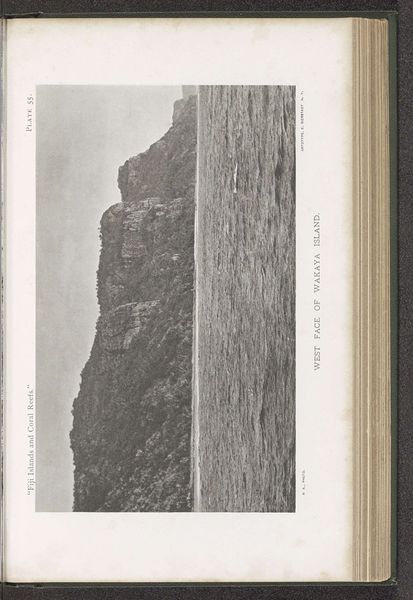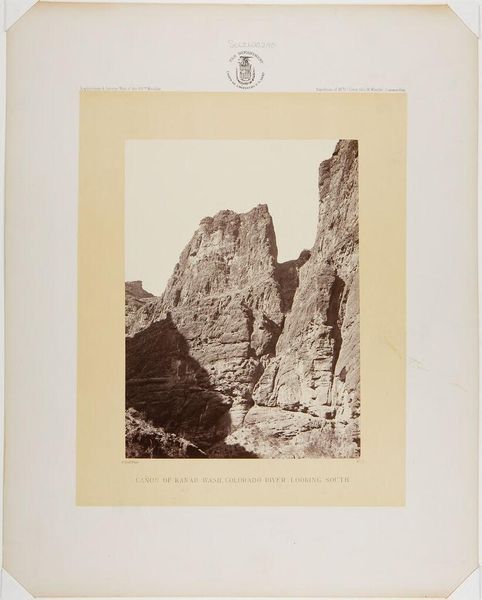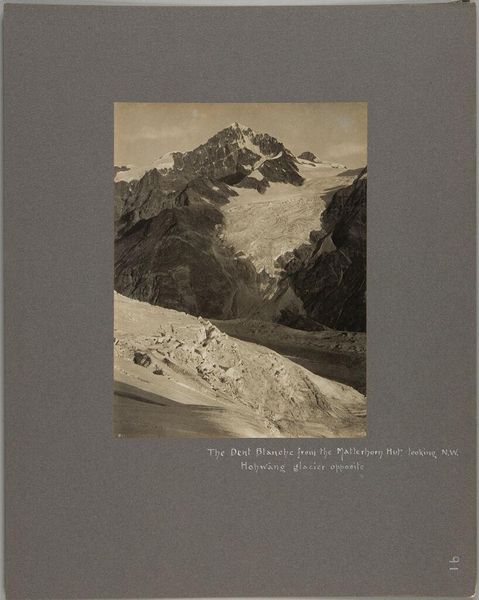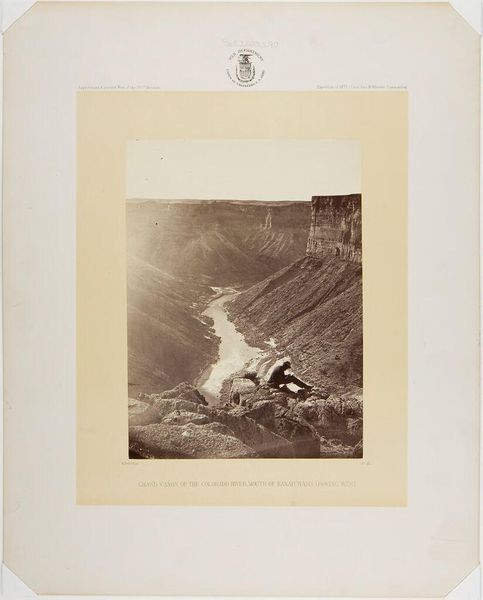
photography
#
landscape
#
photography
#
realism
Dimensions: height 238 mm, width 330 mm
Copyright: Rijks Museum: Open Domain
Editor: So here we have a photograph, seemingly before 1883, titled "Vuurtoren op de klif van Raz de Sein," which translates to Lighthouse on the Cliff of Raz de Sein. It's a landscape study and rendered in realism. I'm immediately struck by the contrast between the roughness of the cliff and the clean, manufactured lighthouse. What is your perspective on this? Curator: What catches my eye is the labor involved in creating this structure in such a location. The photograph, itself a product of a specific technological moment, obscures the immense physical work of quarrying and transporting the stone, not to mention the logistics of feeding and housing the workers involved. This image serves almost as propaganda for industrial progress. Consider the social implications here; we have a portrait of control. The workers tamed a formidable bit of landscape using materials taken directly from that same landscape. What does the absence of the worker do for you? Editor: That’s a fascinating point. I was focused on the stark aesthetic contrast. The absence of people does make it feel like a monument more than a workplace. So the social message is embedded in the making and not in the final image, that is what makes this materialism, correct? How did the process alter our relationship with the landscape itself? Curator: Exactly. The means of production, the availability and deployment of certain materials, fundamentally shapes the meaning. The photographic process, too, played a part in democratizing images. Previously, only a wealthy elite might be able to enjoy painted landscapes, but now suddenly, the masses have access to depictions such as this one. Do you think they ponder the laborers or celebrate man’s ingenuity over nature when they view this? Editor: I never thought about photography having such a purpose! That is some food for thought. Thanks for the interesting materialist insight into it all. Curator: A pleasure to explore the impact of process on this photograph!
Comments
No comments
Be the first to comment and join the conversation on the ultimate creative platform.
